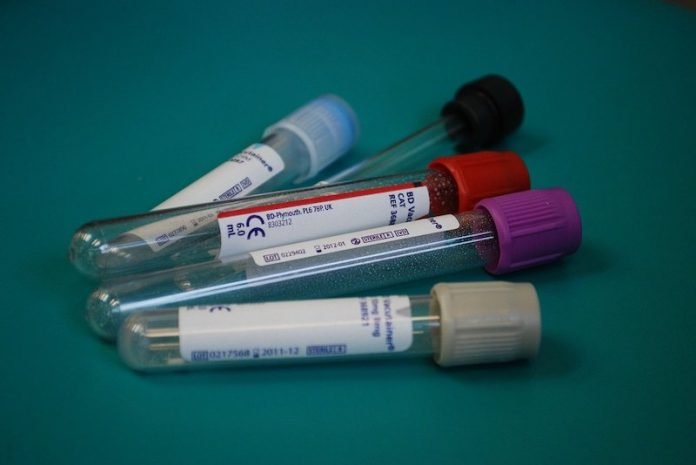
In a new study, researchers found that people with severe COVID-19 and a secondary blood infection were significantly sicker upon hospital admission, had longer hospital stays, and poorer outcomes.
The research was conducted by a team at Rutgers University.
In the study, the team looked at 375 patients diagnosed with severe COVID-19 from March to May 2020.
Of that group, they sampled 128 cases that had secondary bloodstream infections, 92% of which were bacterial infections.
The team found these patients were more likely to have altered mental status, lower percent oxygen saturation, septic shock and to be admitted to the intensive care unit compared to those without bloodstream infections.
The researchers also found that patients who needed more advanced types of supplemental oxygen upon hospital admission had higher odds of secondary bloodstream infections.
The in-hospital mortality rate for these patients was more than 50%, but the study reported these deaths were linked to, not caused by, the condition.
According to the study, infections in COVID-19 patients may have contributed to the severity of illness or it may reflect other underlying physiological and immunological complications of COVID-19.
The team found that the most common cause of secondary bloodstream infections was unknown or not determined followed by central-line associated bloodstream infection as the most common presumed source.
About 80% of all the patients in the study received antimicrobials at some point during hospitalization, including those who did not have bloodstream infections.
This likely reflects clinicians’ inclination to administer antimicrobials given the limited information on the natural course of this novel disease.
Further studies are needed to better understand when to suspect and treat empirically for secondary bloodstream infections in severe COVID-19.
One author of the study is Pinki Bhatt, an assistant professor at Rutgers Robert Wood Johnson Medical School’s Division of Allergy, Immunology and Infectious Disease.
The study is published in Clinical Infectious Diseases.
Copyright © 2020 Knowridge Science Report. All rights reserved.



